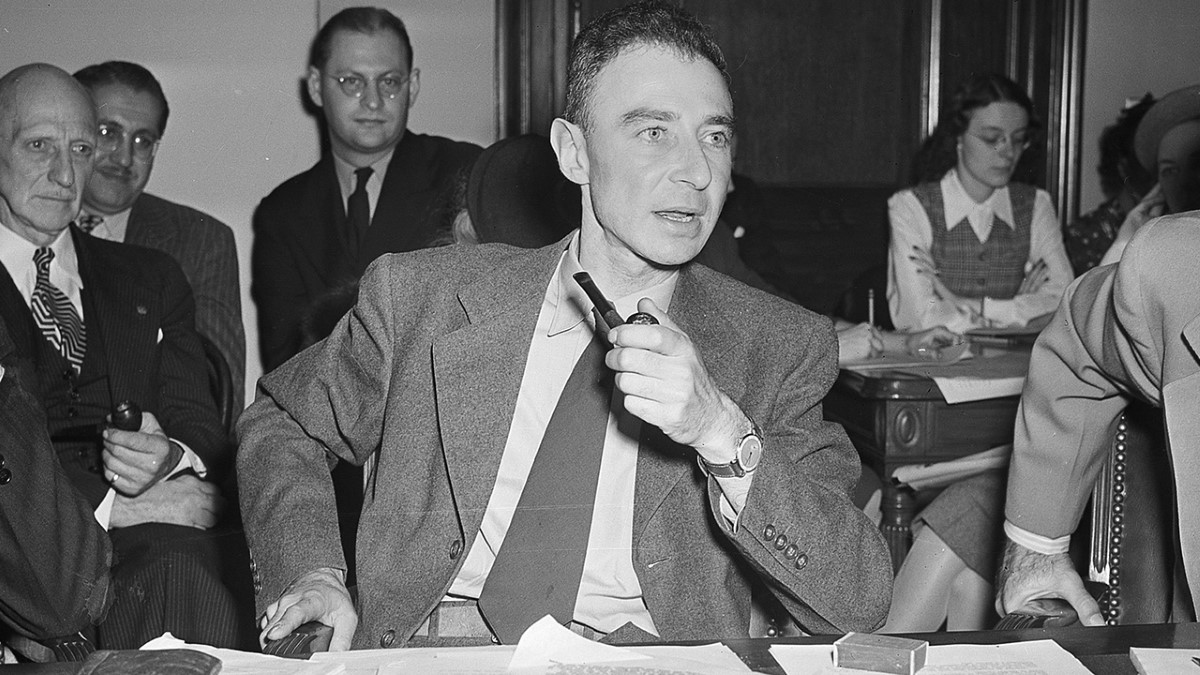J. Robert Oppenheimer: The Man Behind the Atomic Bomb
J. Robert Oppenheimer, hailed as the “father of the atomic bomb,” was a brilliant American theoretical physicist born on April 22, 1904, in New York City. His life and legacy are intricately woven into the fabric of the 20th century, marked by scientific achievements, wartime contributions, and a complex personal journey.
Early Years and Academic Brilliance
Oppenheimer, raised in a wealthy and cultured family, displayed intellectual prowess from a young age. He attended the Ethical Culture School in New York, where his interest in science and literature flourished. Later, he studied at Harvard University, graduating in just three years with a degree in chemistry. Continuing his academic journey, Oppenheimer pursued a Ph.D. in theoretical physics in Europe, studying at the University of Cambridge and the University of Göttingen.
Theoretical Physics and Quantum Mechanics
Returning to the United States, Oppenheimer delved into theoretical physics and made significant contributions to the field. His work on quantum mechanics, particularly the Oppenheimer-Phillips process, brought him acclaim within the scientific community. Despite his success, Oppenheimer found himself at the intersection of science and societal challenges that would shape the course of his life.
Leadership in the Manhattan Project
As World War II unfolded, Oppenheimer was thrust into a pivotal role that would define his legacy. In 1942, he assumed leadership of the Manhattan Project, a top-secret research and development project tasked with creating the world’s first atomic bomb. The urgency of wartime and the threat of Nazi Germany’s nuclear ambitions motivated Oppenheimer and his team.
The culmination of their efforts came in July 1945 with the successful test of the first atomic bomb, code-named “Trinity,” in New Mexico. The project, while instrumental in hastening the end of World War II, also raised profound ethical questions about the use of such devastating weapons.
Post-War Challenges and Controversies
The post-war era brought both accolades and challenges for Oppenheimer. He faced scrutiny during the Red Scare, a period of intense anti-communist sentiment in the United States. Oppenheimer’s associations with leftist intellectuals and his past involvement in leftist causes subjected him to suspicion.
In 1954, Oppenheimer’s security clearance was revoked after a highly publicized hearing. Accused of having communist sympathies, he experienced a precipitous fall from grace. The decision was a defining moment in Oppenheimer’s life, leaving a lasting impact on his career and reputation.
Legacy and Later Years
Despite the controversies, Oppenheimer continued to contribute to academia and scientific discourse. He served as the director of the Institute for Advanced Study in Princeton and remained engaged in the scientific community.
In 1963, President Lyndon B. Johnson awarded Oppenheimer the Enrico Fermi Award, a gesture seen as a form of political rehabilitation. The physicist, who had played a pivotal role in the creation of a world-altering weapon, spent his later years grappling with the consequences of his contributions to science and the impact of nuclear weapons on humanity.
J. Robert Oppenheimer passed away on February 18, 1967, leaving behind a complex legacy. His life reflects the intricate interplay between scientific achievement, wartime necessity, and the ethical dilemmas that arise when knowledge is harnessed for destructive purposes. Oppenheimer’s story serves as a cautionary tale about the moral responsibilities of scientists and the enduring consequences of their work on the world stage.
* * *
The life of J. Robert Oppenheimer has been extensively explored in various biographies and media adaptations.
- The Pulitzer Prize-winning biography American Prometheus (2005) by Kai Bird and Martin J. Sherwin is a notable work on Oppenheimer’s life.
- The 1980 BBC TV serial Oppenheimer, featuring Sam Waterston, received acclaim with three BAFTA Television Awards.
- The documentary The Day After Trinity (1980) earned an Academy Award nomination and a Peabody Award for its portrayal of Oppenheimer and the atomic bomb.
- Tom Morton-Smith’s play Oppenheimer (2015) delves into his life, as does the 1989 film Fat Man and Little Boy, with Dwight Schultz playing Oppenheimer.
- David Strathairn portrayed Oppenheimer in the 1989 TV movie Day One.
- In the 2023 film Oppenheimer, directed by Christopher Nolan and based on “American Prometheus,” Cillian Murphy takes on the role of J. Robert Oppenheimer.

